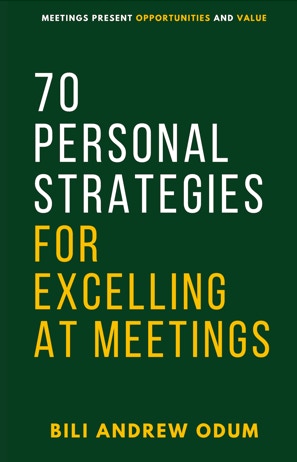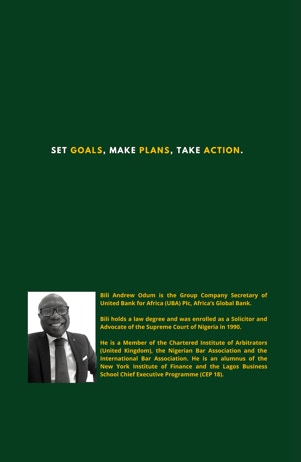Kennedy Uzoka
Mr. Kennedy Uzoka, an accomplished Banker, is the Group Managing Director & Chief Executive Officer of United Bank for Africa Plc, Africa’s Global Bank.

How to Excel at Meetings by Kennedy Uzoka

Over the years, I have been part of countless formal and informal meetings, in various capacities, and I am happy to share my thoughts on a few essentials for making meetings successful.
I do like to set and/or see the agenda for a meeting well ahead of time. Where I fully manage the scope of the meeting, I set out items which must be addressed by the meeting. I simply do not like to call for meetings just for the sake of coming together. I like to set key achievable objectives and goals, separated into specific items on the agenda with relevant executives informed to prepare and lead discussions on each item as appropriate.
Setting the agenda as outlined above usually enables me to carefully go through each item on the agenda. It affords me the useful opportunity to picture the general direction of discussions, have a fair idea whether the meeting will achieve the set objectives and, more importantly, forces me to prepare and note my indicative position on the issues. At the meeting, I may be persuaded to reach other conclusions based on superior ideas/ views from the participants. However, I have discovered that, for effectiveness, it is always advantageous to carefully articulate one’s thoughts on the issues especially at the agenda-setting stage well before the meeting starts.
It is essential to allow meeting participants make their contributions first before expressing your views, especially if you are chairing the meeting. This ensures that as the presiding officer, especially where you carry a certain level of authority, you are able to avoid confirmation bias, that is the tendency for the meeting participants to quickly align with your position thereby ignoring or drowning out differing and perhaps, better ideas.
The success of any meeting is heavily dependent on the quality of ideas generated by the people present. It is therefore essential to invite the right people to a meeting based on the set agenda. This will not only assure quality deliberations and decisions, but also engender ownership of decisions. It also makes it easier for those assigned with execution of action items to accept decisions as collective and binding.
Lastly, I have observed that most successful meetings happen when participants are notified in good time. It is important to advise participants of relevant details (the content as well as expectations of the meeting) in advance, to enable them prepare adequately. Meetings should also be uncompromising with time management to ensure focus and to keep enthusiasm and participation levels positively consistent throughout.

